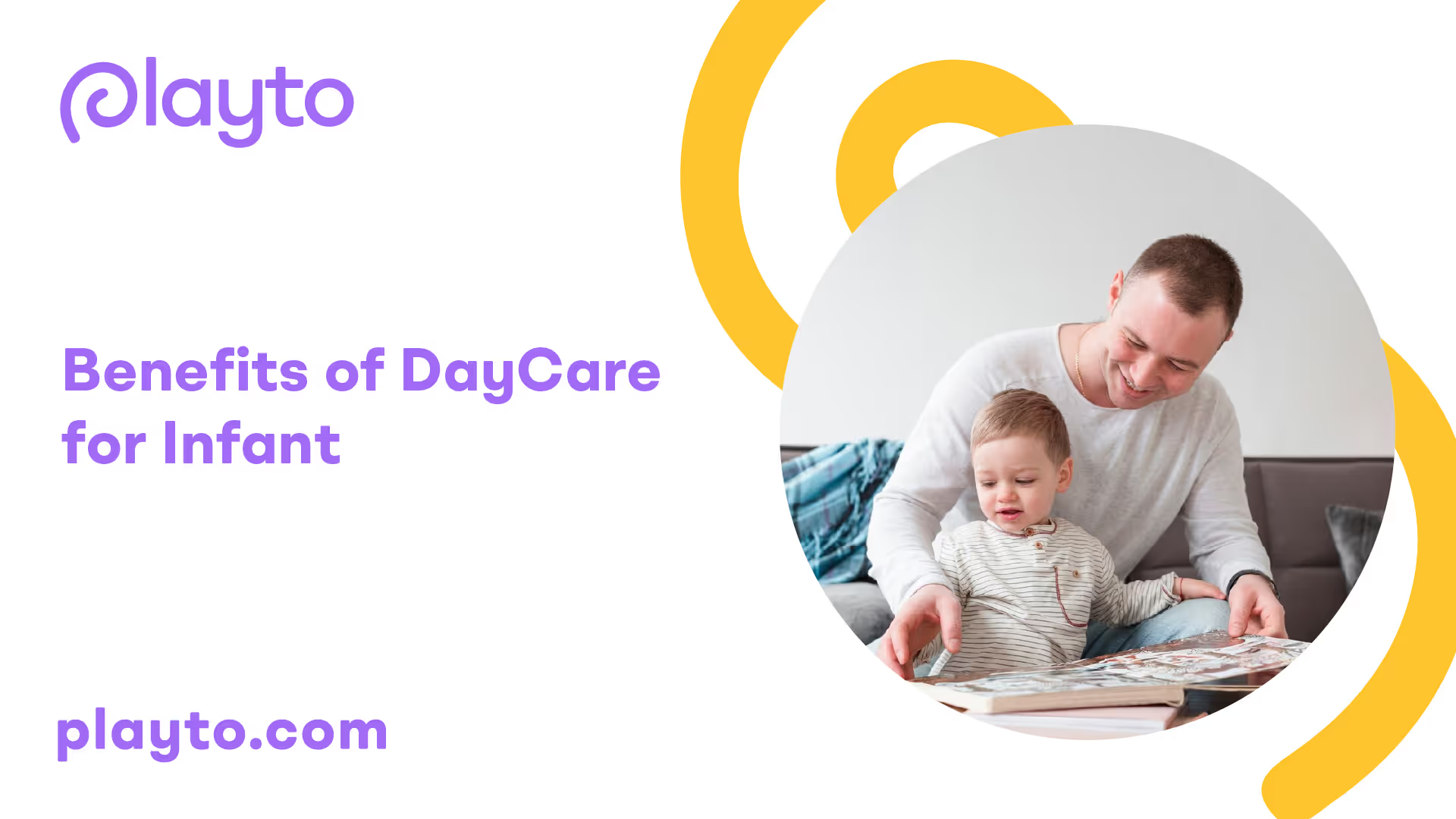
Overview of Daycare Benefits
Daycare programs provide numerous advantages for infants, fostering their growth and development in various essential areas. Understanding these benefits can help parents make informed decisions regarding their child's early experiences.
Importance of Early Development
Early development plays a crucial role in setting the foundation for a child's future. Research indicates that daycare improves children’s social, emotional, and cognitive development by exposing them to a variety of social situations. This exposure enables them to become better communicators and exhibit advanced social skills compared to their peers [1].
A significant study conducted by the University of North Carolina revealed that infants in high-quality childcare programs were four times more likely to earn a college degree and had more years of total education compared to their peers [1]. This highlights the long-term benefits of enrolling infants in quality daycare programs.
Types of Daycare Programs
There are several types of daycare programs available to parents, each offering unique approaches to care and education. Understanding these options can assist parents in selecting the most suitable environment for their infants.
Type of Daycare Program Description
- Home-Based Daycare: Operated in a caregiver's home, providing a more personalized, intimate setting for infants.
- Center-Based Daycare: Larger facilities with structured programs and multiple caregivers, focusing on socialization and learning.
- Montessori Daycare: Emphasizes child-led learning and independence, allowing infants to explore their environment at their own pace.
- Reggio Emilia Approach: Focuses on self-expression and community involvement, encouraging infants to explore and learn through play.
Enrollment in a high-quality daycare center can significantly impact children’s social and emotional development, leading to higher levels of empathy, resilience, and prosocial behavior later in life due to consistent socialization and play in early childhood.
Quality daycare programs also support cognitive growth and school readiness by providing structured days with activities designed to engage the senses and stimulate development, which are crucial for pre-literacy skills before kindergarten.
For parents considering daycare options, it's important to research and find the right fit for their child. Resources such as choosing the right infant daycare can provide further guidance on this journey.

Social Development Advantages
Daycare plays a crucial role in fostering social development in infants. Through various interactions and structured activities, children can enhance their communication abilities and build essential social skills.
Enhanced Communication Skills
The daycare environment fosters communication skills through consistent interactions with caregivers and peers. This setting allows infants to observe and develop language skills in a supportive atmosphere. Research indicates that regular engagement in a daycare can significantly improve a child's ability to express themselves effectively and understand verbal cues.
Aspect Benefits
- Interaction with Peers: Encourages children to practice language in real situations.
- Caregiver Support: Provides a model for effective communication and language use.
- Group Activities: Enhances vocabulary and conversational skills through play.
Building Social Skills
Enrollment in high-quality daycare centers leads to significant social and emotional development advantages. Children learn vital skills such as sharing, cooperation, and conflict resolution during their formative years. This consistent socialization and play contribute to higher levels of empathy, resilience, and prosocial behavior later in life.
Social Skill Description
- Sharing: Learning to take turns and share resources with others.
- Cooperation: Working together with peers towards a common goal.
- Conflict Resolution: Developing strategies to resolve disagreements positively.
Research shows that participation in a quality daycare program can have a lasting impact on a child's social behavior, encouraging them to engage positively with others.
Overall, the benefits of daycare for infants extend beyond mere supervision; they provide a foundation for crucial social interactions that contribute to lifelong skills. For more information on what infants learn in daycare, you can visit our article on what infants learn in daycare. Additionally, parents can prepare for their child's transition with our tips on the first day at infant daycare.

Emotional Growth Benefits
Daycare provides a nurturing environment that significantly contributes to the emotional growth of infants. This section highlights two key advantages: fostering empathy and resilience, and encouraging independence.
Fostering Empathy and Resilience
Enrollment in a high-quality daycare center can lead to higher levels of empathy and resilience in children. According to research, consistent socialization and play during early childhood are crucial for developing these emotional skills [2].
In daycare settings, infants interact with their peers, allowing them to experience a range of emotions and learn to understand the feelings of others. This social exposure helps cultivate prosocial behaviors, essential for building strong relationships throughout life.
Emotional Skill Description
- Empathy: The ability to understand and share the feelings of others.
- Resilience: The capacity to recover quickly from difficulties or adapt to change.
High-quality daycare programs have been shown to promote skills like sharing, cooperation, and conflict resolution, which are foundational for developing empathy and resilience in young children.
Encouraging Independence
Daycare also plays a vital role in encouraging independence among infants. Quality daycare programs foster children's confidence by promoting self-sufficiency and supporting their competencies through scaffolding.
In a daycare setting, children are given opportunities to make choices, explore their environment, and engage in activities without constant parental supervision. This autonomy helps them develop a sense of capability and empowerment, which is crucial for their emotional development.
Independence Skill Description
- Decision Making: Learning to make choices and understand consequences.
- Problem Solving: Developing strategies to overcome challenges.
As infants learn to navigate social interactions and take on new tasks, they build a foundation for emotional growth that will benefit them throughout their lives. For more information on how to choose the best daycare for your child, visit our guide on choosing the right infant daycare.
Overall, the emotional benefits of daycare extend far beyond the early years, laying the groundwork for healthy emotional development as children grow. For insights into what infants learn in daycare, check out our article on what infants learn in daycare.
Cognitive Development Effects
Daycare plays a significant role in shaping the cognitive development of infants, influencing their readiness for school and their long-term educational outcomes.
School Readiness and Learning
Quality daycare programs are designed to support cognitive growth and prepare children for school. A structured environment filled with activities that engage the senses is crucial for developing pre-literacy skills before kindergarten. A 2016 study indicated that by age five, children who attended high-quality formal childcare programs demonstrated significantly stronger reading and math skills compared to those in informal, home-based daycare settings.
Children who attend daycare not only excel in academic skills but also develop essential non-academic abilities necessary for success in early education. These include problem-solving, critical thinking, and social interaction skills, all of which contribute to a well-rounded school readiness.
Skill Area Development in Daycare Comparison to Home-Based Care
- Reading Skills: Stronger/Weaker
- Math Skills: Stronger/Weaker
- Social Interaction: Enhanced/Limited
Impact on Future Education
The benefits of daycare extend beyond early childhood, significantly influencing long-term academic success. Studies show that children who attend quality early childhood education programs are more likely to graduate high school and pursue higher education. Research conducted by the National Institutes of Health revealed that teenagers who attended high-quality daycare exhibited higher cognitive and academic achievement, better self-control, and improved self-esteem compared to those who did not attend such programs.
The correlation between early daycare attendance and educational attainment highlights the importance of selecting a daycare that prioritizes structured learning and cognitive development. For guidance on selecting the best care for infants, consider reading about choosing the right infant daycare. The foundational skills gained in daycare not only prepare children for immediate academic challenges but also pave the way for future educational opportunities.
Health Benefits of Daycare
Daycare for infants offers numerous health benefits that can positively influence their overall well-being. Two significant aspects of these health advantages are strengthening immune systems and promoting healthy habits.
Strengthening Immune Systems
One of the key benefits of daycare is the development of a stronger immune system. Infants in daycare settings are exposed to various germs and bacteria, which can help them build immunity. Studies show that children in daycare develop stronger immune systems and are less likely to get sick during elementary school, leading to less absenteeism in grade school.
This exposure can reduce the frequency of illnesses later in life, contributing to better health outcomes as they grow. The early interactions with other children can help infants learn to fend off infections, leading to a healthier start in their educational journey.
Health Benefit Description
- Stronger Immune System: Reduced likelihood of illness during elementary school
- Less Absenteeism: Fewer sick days in grade school
Promoting Healthy Habits
Daycare environments often encourage healthy eating habits and active lifestyles. Enrollment in quality daycare programs is associated with improved cardiovascular health and better overall wellness in children who attended as infants.
Infants in daycare settings typically have access to healthy meals and snacks, which can foster an early appreciation for nutritious foods. Additionally, engaging in group activities and play promotes physical activity, establishing a foundation for a healthier lifestyle as they grow.
Healthy Habit Description
- Balanced Nutrition: Exposure to healthy meals and snacks
- Active Lifestyle: Participation in physical activities and play
These health benefits underscore the importance of considering the benefits of daycare for infants when making childcare decisions. For parents in New York, it is essential to explore options that prioritize both health and education for their little ones. For more guidance, check out articles on choosing the right infant daycare and what infants learn in daycare.
Long-Term Academic Success
The benefits of daycare for infants extend beyond immediate social and emotional learning. Quality daycare programs can significantly impact children's long-term academic success, leading to higher graduation rates and better career opportunities.
Higher Graduation Rates
Research indicates that children who participate in high-quality daycare programs are more likely to graduate from high school compared to their peers who do not. For instance, a study highlighted that children in early childhood education programs have better academic outcomes and are more likely to attend college. A 2016 study revealed that by age 5, children attending formal childcare had stronger reading and math skills than those in informal settings [1].
Academic Outcome Percentage More Likely to Achieve
- High School Graduation: 20%
- College Attendance: 80%
Future Career Opportunities
Quality daycare not only enhances academic achievement but also influences future career prospects. According to research, children who attend high-quality daycare are 80% more likely to pursue higher education and earn salaries that are 33% higher than those who did not participate in such programs. A study by the National Institutes of Health found that teenagers who had attended quality daycare exhibited better self-control and improved self-esteem, which are essential traits for career success [3].
Career Outcome Percentage Advantage
- Higher Education Enrollment: 80%
- Increased Salary Potential: 33%
The positive effects of quality daycare programs, such as those provided in New York, can lead to lasting advantages in education and career opportunities. For parents considering options, resources like choosing the right infant daycare can help determine the best fit for their child. Moreover, understanding what infants learn in daycare can provide insight into the skills they will develop during their formative years.
.avif)